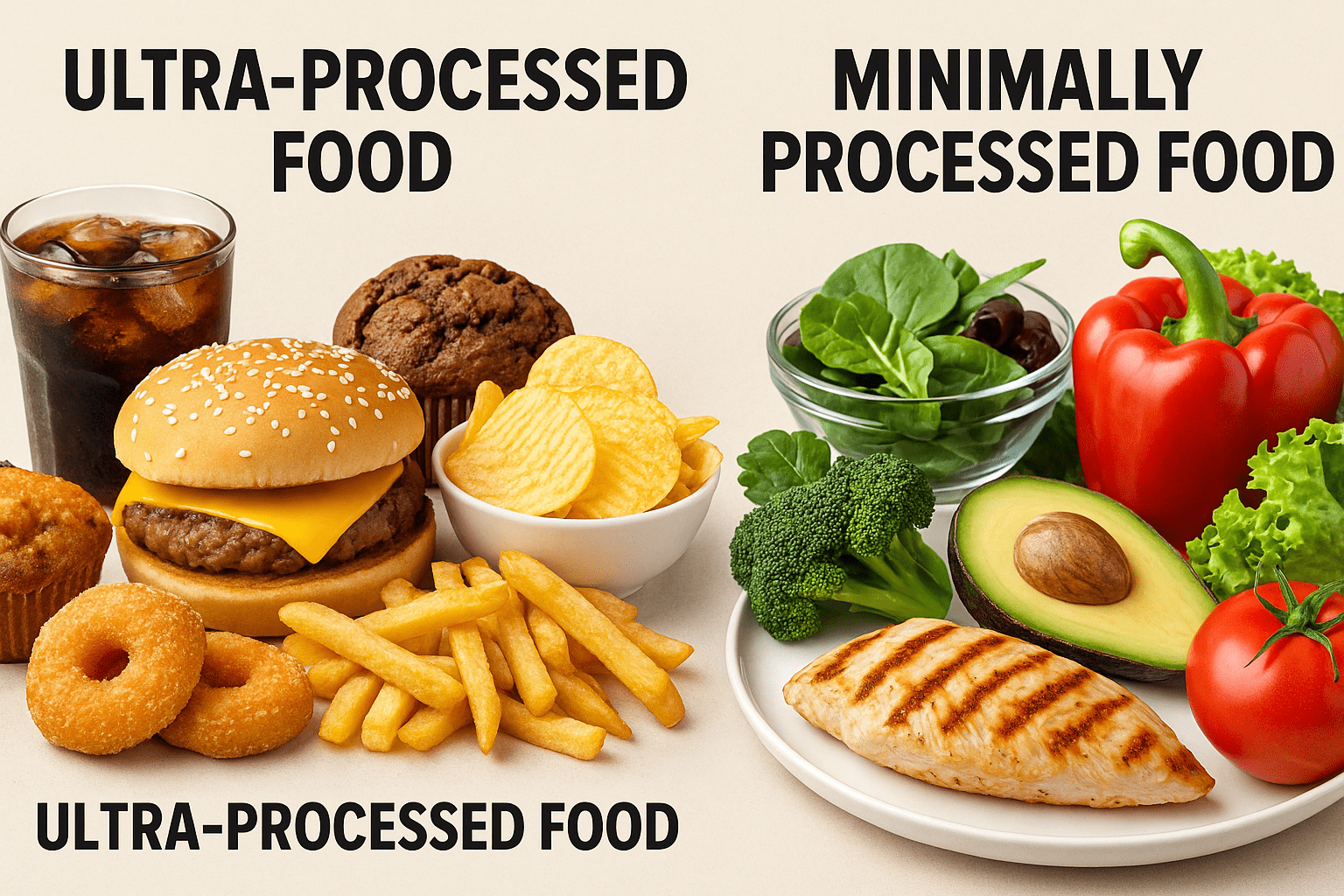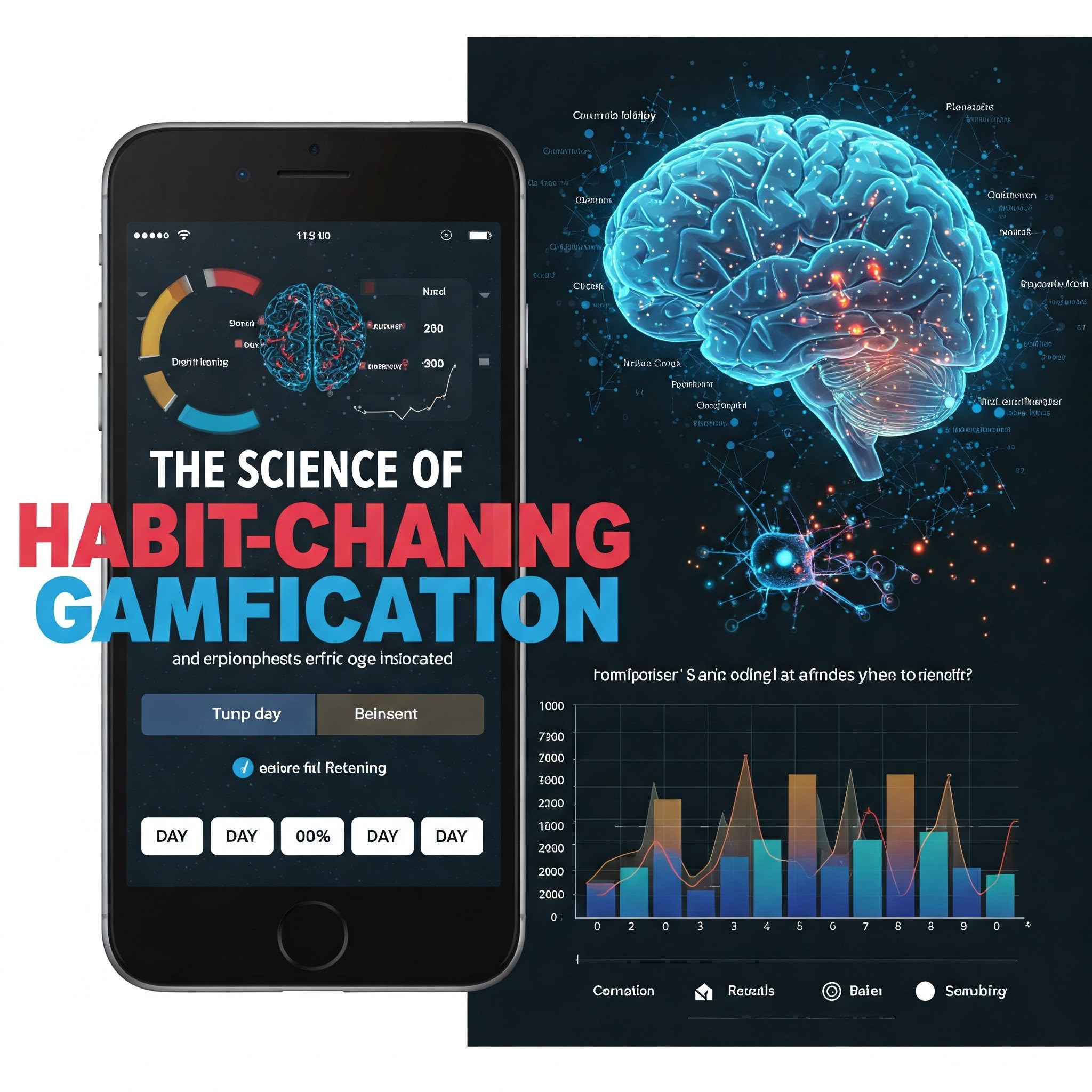Food isn’t just fuel—it shapes your body, your energy, even your mood. But in today’s supermarket aisles, not all food is created equal. Labels scream “natural,” “organic,” or “healthy,” yet many of them hide the reality of ultra-processed ingredients. So, what’s the real difference between ultra-processed and minimally processed foods—and why does it matter for your health?
Let’s break it down clearly, so you know exactly what you’re putting on your plate.
What Is “Processed” Food, Anyway?
First, let’s clear the confusion: “processed” doesn’t automatically mean bad.
Almost all food is processed to some degree. If you wash, chop, cook, freeze, or can a food—congratulations, it’s been processed. But there’s a spectrum:
The 4 Levels of Food Processing (According to NOVA Classification):
- Unprocessed/Minimally Processed Foods
Example: Fresh fruits, raw nuts, rolled oats, eggs, vegetables.
Processing: Cleaning, chilling, drying—nothing that changes the food’s natural structure or adds chemicals. - Processed Culinary Ingredients
Example: Oil, butter, salt, sugar.
Made from whole foods, usually used to cook other foods. - Processed Foods
Example: Cheese, pickles, canned beans, smoked meats.
Contain 2–3 ingredients, often preserved or fermented, but still resemble their original food source. - Ultra-Processed Foods (UPFs)
Example: Soda, chips, frozen pizza, flavored yogurts, instant noodles.
Industrial creations with additives, flavorings, emulsifiers, and little resemblance to whole food.
What Makes Ultra-Processed Foods So Problematic?
Ultra-processed foods don’t just contain food—they contain food-like substances.
Here’s why that’s a problem:
- Low in Nutrients, High in Calories: UPFs are often packed with added sugar, refined carbs, salt, and bad fats—while lacking fiber, vitamins, and minerals.
- Engineered for Overeating: Created to be hyper-palatable, they hijack your brain’s reward system and lead to binge eating.
- Loaded with Additives: From artificial colors to preservatives, emulsifiers, and thickeners—these can disrupt gut health and hormonal balance.
- Linked to Chronic Diseases: Studies associate high UPF consumption with obesity, type 2 diabetes, heart disease, depression, and even early death.
What Are Minimally Processed Foods?
These are foods as close to their natural state as possible. They might be:
- Washed (like bagged spinach)
- Chopped (pre-cut veggies)
- Roasted (unsalted nuts)
- Frozen (plain berries or peas)
But here’s the key: they haven’t been chemically altered or filled with additives.
✅ High in nutrients
✅ Satisfying and filling
✅ Naturally support weight management and health
Science Speaks: What the Research Says
A Landmark Study from NIH (2019):
Participants eating ultra-processed foods consumed 500 more calories per day than those eating minimally processed meals—even though meals were matched for calories, sugar, fat, and carbs.
Result? Weight gain on UPFs, and weight loss on minimally processed foods—with no calorie counting.
Conclusion: It’s not just how much you eat—but what you eat that drives health outcomes.
Ultra-Processed vs. Minimally Processed: Side-by-Side Comparison

Why It Matters: Especially for Weight Loss
If you’re trying to lose weight, cutting ultra-processed foods is more effective than counting every calorie.
Why?
- You’ll naturally eat less because real food fills you up.
- You’ll avoid blood sugar spikes and crashes.
- You’ll reduce cravings driven by engineered additives.
Simple Swaps to Transition Away from UPFs

Final Thought
Food is more than fuel—it’s information for your body.
Ultra-processed foods confuse your system. Minimally processed foods help your body thrive.
Next time you’re at the store, flip the package and ask yourself:
“Would my grandmother recognize this ingredient?”
If not, maybe it belongs back on the shelf.
FAQs
Q: Are all processed foods bad?
A: No. Canned beans, frozen veggies, and whole-grain pasta are processed, but still nutritious. Focus on avoiding ultra-processed foods.
Q: Can I lose weight by just cutting out ultra-processed foods?
A: Many people do. You naturally eat fewer calories and feel fuller on minimally processed foods.
Q: What’s the easiest way to reduce ultra-processed food intake?
A: Cook at home more. Use whole ingredients, and prepare meals in batches to avoid relying on packaged snacks or takeout.



